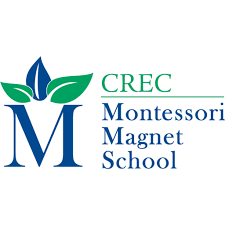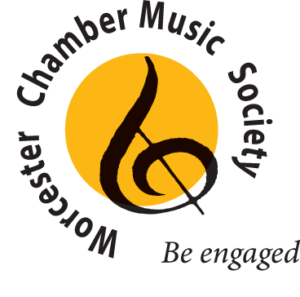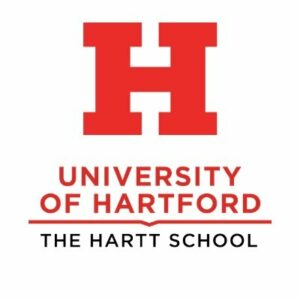Hartford’s Proud
 At Hartford’s Proud, a member from our group interviewed Terry Starks. Terry Starks mentioned how in Hartford, the support and resources are not given, and the importance of communication and word of mouth to build small music education programs was emphasized. Hartford’s Proud is a safe space and support system for families and young kids in poverty, where they not only get a music education but use art as an outlet to cope with trauma. Through conducting various performances they were able to expand the program, and hence they were able to build essential connections with Hartford Foundation, CT Humanities, and more.
At Hartford’s Proud, a member from our group interviewed Terry Starks. Terry Starks mentioned how in Hartford, the support and resources are not given, and the importance of communication and word of mouth to build small music education programs was emphasized. Hartford’s Proud is a safe space and support system for families and young kids in poverty, where they not only get a music education but use art as an outlet to cope with trauma. Through conducting various performances they were able to expand the program, and hence they were able to build essential connections with Hartford Foundation, CT Humanities, and more.
 CREC Montessori Magnet School
CREC Montessori Magnet School
We interviewed Kristen Benoit at the Montessori Magnet School, where they have focused on string instruments since 2000. Here, students have the opportunity to play violin starting in second and third grade, regardless of their background. Benoit also talked about an advantage of string instruments that other instruments don’t have, which is that the string instruments come in many different sizes, for example a mini violin is an option for young students, but a mini trumpet is not available. As most of the students at this school are elementary students, she uses Suzuki tunes which are very accessible to younger kids and easy for them to learn. Additionally, she uses teaching methods including echoing, modeling, and utilizing free resources like YouTube. Many times, she will sing a tune, and the students will play that tune on their instruments. This school makes sure to make instrumental education accessible to all and also addresses language barriers: she uses basic directions and teaches students by her fingers, actually physically moving their bow for them and their fingers. A major piece of advice we can take from this conversation and apply to our new music program and to new music instructors, is to identify what is going to motivate students to learn, and finding a way to make opportunities accessible to them.
Hartt School Community Division & West Hartford Public Schools
 Charter Oak Cultural Center
Charter Oak Cultural Center
Susan Mazer at Charter Oak discussed how Charter Oak was able to have their own music programs and help begin other programs in Hartford. Charter Oak serves a population of 2% caucasian and 57% Hispanic through their City School of the Arts program, leading them to understand how to create culturally relevant music education. Similarly to Jubilee House’s prospective program, they give free lessons and do not require participants to buy their instruments as they understand that “25 dollars for piano lessons can be too much.” She noted that to keep their material culturally relevant, they vary their repertoire based on what the community chooses through surveys. She was overjoyed at our idea to survey the community to see what instruments they would be interested in. In terms of string instruments though, Susan recommended the Suzuki Method–which is largely centered in learning by ear and putting sound before sight–for teaching strings. She addresses language barriers in the class by having many of the instructors speak Spanish, but, for those who do not have staff that speaks their language, there is a lot of showing when telling does not work. She said she will direct students by moving their hand into place to teach them what to do. This will be particularly relevant for us as the staff of Jubilee House, largely, does not speak the language of their participants.
We had the opportunity to interview Emmett Drake, who is currently the Director of Suzuki Orchestras and Large Ensembles Supervisor at The Hartt School Community Division. In our conversation, we have identified the reasons for the major disparity in music education programs in Hartford and West Hartford: tax money allocation, wide range of income, diversity, and the healthy financial support in W. Hartford. Gifts of Music Program is a program in W. Hartford in which Hartt School Community Division teaches private lessons to students who are not financially supported. Although most students were well versed in speaking English, those who could not speak English were given lessons by a classmate that spoke Portuguese so the language barriers were definitely addressed. Each community is different, so the level of commitment and families vary from place to place. Nevertheless, it was assured that parents have an understanding of what is happening in the programs. One of the main takeaways from this interview were the recommendations that were given such as starting small with a small number of people, and slowly expanding the program as time proceeds and finding a partner/resources. When asked if we should focus on strings, Emmett Drake mentioned that strings does not have to be as elitist as it can sometimes be, and to instead focus on the advantage of strings education and the routine/discipline involved.
 INTEMPO
INTEMPO
At INTEMPO two group members interviewed Douglas Lausten who is the Manager of Education and Community Impact there. At INTEMPO they provide music education centered around Latino music. They start by having every student enter with small group lessons, to help build a sense of community for the students. They either continue with small groups or go into one on one lessons depending on how dedicated they are to the skill and the craft aspect of music. INTEMPO recently started a new English learning program, where they go into schools and bring in songs or instruments that match what they are learning in school to help with their language acquisition. Before they started this program there was already a supplemental literacy program in place at INTEMPO, which we found especially interesting since Jubilee House offers English lessons, so this could be something that they could implement into their existing programming as a way to get clients interested in potential lessons that are strictly music down the line. When asked about what success looks like at INTEMPO, Douglas said that they currently have no metric for success, and that’s something that they are wanting to introduce in a few years. For the time being, they just try to meet each student’s goals, accommodating them through all levels of success through accessible programming. INTEMPO wants to make their programming more student centered, giving students more creative freedom in choosing the songs that they get to play. Another recommendation from INTEMPO is starting with what Jubilee House feels most comfortable teaching, teaching what they know. That is how they believe they have found the most success as an organization.
 Neighborhood Strings
Neighborhood Strings
Next, we interviewed Debbie Greenebaum at Neighborhood Strings, where she instructed the New Citizens branch of Neighborhood Strings, where she teached new refugees. Here, she mostly teaches kids that have had no formal schooling or only a few years of schooling. Recently, she has been teaching more kids that have fled the Taliban in Afghanistan and usually teaches students from Africa, Afghanistan, and Central America. The mode of instruction depends on the students: The instruction is not the Suzuki method – sometimes kids want to take instruments home, but usually just to show their family. However, she is struggling with connecting the main Neighborhood Strings and New Citizens program because the refugee classroom and New Citizens is at a different location and transportation is a barrier. Debbie realized it’s so important to bring traditions from their culture (though she also says that students want to learn songs not from their own country or culture). To her, students leaving with a feeling of confidence and with a smile on their face is success.
